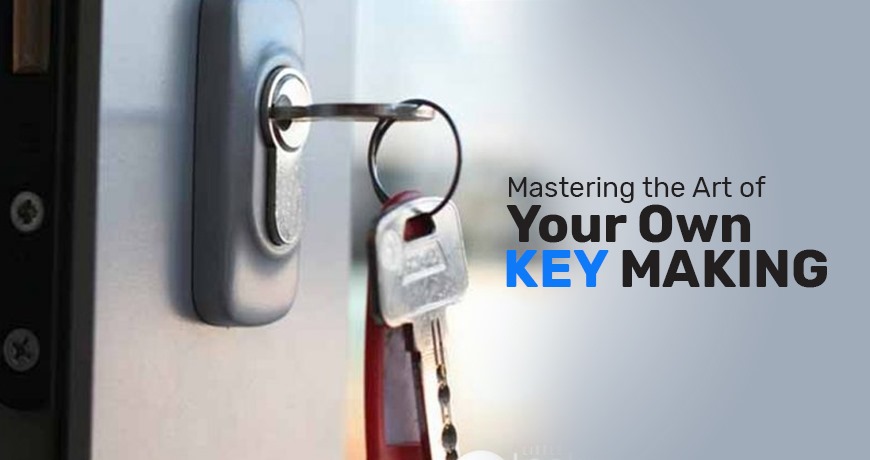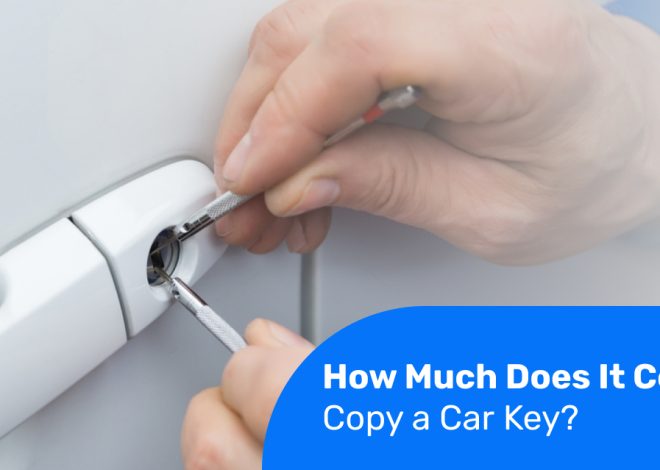Welcome to FixDar, your go-to source for all things related to home maintenance. In today’s blog post, titled “Mastering the Art of Making Your Own Key “we will explore the fascinating world of key making and provide valuable insights on how you can become your own key maker.
Whether you’re in need of a spare key, facing a lockout situation, or simply looking to enhance your DIY skills, we’ve got you covered. We’ll discuss Key maker Services in Karachi, as well as tips on making car keys. Get ready to unlock efficiency and empower yourself with the knowledge and skills to make your own key.
1. Understanding the Basics of Key Making:
Understanding the basics of key making is essential before embarking on the journey of becoming your own key maker. By grasping the fundamentals of key making, you will be well-prepared to tackle various key-related challenges and unlock a world of efficiency. The fundamentals of key making involve several key aspects that are crucial to understand and master.

- Key Types: Familiarize yourself with different key types, such as standard keys, high-security keys, transponder keys, and remote key fobs. Each type has its own unique features and requirements for duplication or replacement.
- Key Profiles: Study the key profiles or shapes, which vary based on the lock manufacturer and model. Common key profiles include pin tumbler, wafer, and dimple.
- Key Cutting Techniques: Learn the various key cutting techniques, such as manual key cutting, code cutting, and laser cutting. Each method requires specific tools and expertise.
- Key Blanks: Understand the concept of key blanks, which are uncut keys that serve as the starting point for key making. Key blanks come in different shapes and sizes to accommodate various lock types.
- Lock Mechanisms: Gain knowledge about different lock mechanisms, such as pin tumbler locks, wafer locks, and disc-detainer locks. Understanding how locks function will help you create keys that fit and operate smoothly.
- Keyway Designs: Keyway refers to the unique pattern or groove on a key that matches the lock. Study different keyway designs to ensure accurate key duplication or replacement.
By grasping these fundamentals, you will have a solid foundation for key making. However, it’s important to note that key making can be a complex process, and obtaining professional training or seeking the assistance of a qualified key maker may be necessary for more advanced or specialized key making tasks.
2. Tools and Materials Needed for DIY Key Making:
To successfully embark on DIY key making, you will need the following essential tools and materials:
- Key Blanks: These are uncut keys that serve as the starting point for key making. Ensure you have key blanks that match the type and profile of the key you are duplicating or replacing.
- Key Cutting Machine: A Key Cutting Machine is essential for accurately shaping and cutting the key blank. There are different types of key cutting machines available, such as manual key cutters, code cutters, and laser key cutters. Choose a machine suitable for your needs and budget.
- Key Duplicator: If you’re duplicating a key rather than creating one from scratch, a key duplicator is necessary. This machine allows you to copy the existing key onto a blank key, preserving its shape and profile.
- Calipers: Calipers are precision measurement tools used to measure the dimensions of the original key or lock. These measurements are crucial for accurately cutting the key blank to match the desired specifications.
- Key Files: Key files are used to shape and smooth the edges of the key blank. They are essential for removing any rough edges or imperfections that may hinder the key’s functionality.
- Key Gauges: Key gauges are used to determine the depth and spacing of the key cuts. They help ensure that the key cuts align with the lock’s internal pins or tumblers.
- Lubricant: Applying a lubricant, such as graphite powder or silicone spray, helps to reduce friction and ensure smooth operation of the key in the lock.
It’s important to note that the tools and materials required for DIY key making may vary depending on the complexity of the key and the type of lock you are working with. Consider seeking professional guidance or training if you are new to key making to ensure accurate and efficient results.
At FixDar, we understand the value of self-reliance and the benefits of making your own key. Our mission is to empower homeowners and car owners with the knowledge and expertise to handle their key-related needs.
From finding a key maker near you to learning the intricacies of car key making, our blog aims to guide you through the process and unlock efficiency in your home maintenance endeavors. Trust FixDar as your partner in key making and experience the cost savings and convenience of becoming your own key maker.



